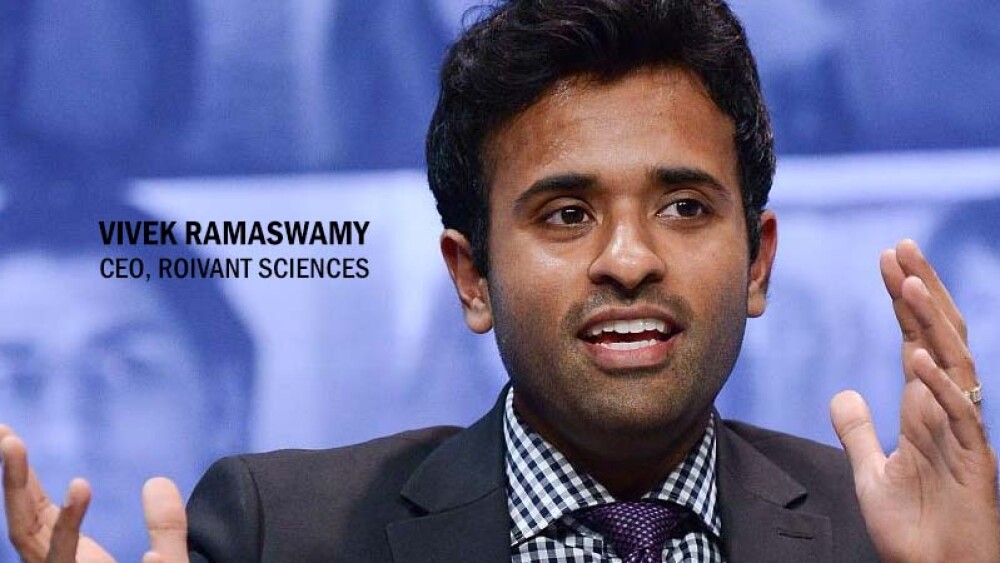June 6, 2017
By Alex Keown, BioSpace.com Breaking News Staff
BASEL, Switzerland – Biotech guru Vivek Ramaswamy is at it again. He’s launched his fifth startup in the past three years and has inked a deal to develop a Phase III-ready overactive bladder treatment.
Roivant Sciences, Ramaswamy’s parent company, has launched Urovant Sciences, a company focused on developing therapies for urologic conditions. Urovant is coming out of the gate with a Phase III-ready drug it licensed from Merck Sharp & Dohme Corp., a subsidiary of pharma giant Merck & Co., Inc. Vibegron is an oral ß3-adrenergic agonist being developed for the treatment of overactive bladder with symptoms of urge urinary incontinence, urgency, and urinary frequency.
ß3-adrenergic receptors play a role in the bladder fill-void cycle. By stimulating the ß3 pathway, vibegron has the potential to relax the bladder detrusor muscle, which will allow a more efficient storage of urine and decreasing the symptoms of overactive bladder. Overactive bladder affects approximately 46 million American adults.
Merck has completed Phase II development on the drug that met primary endpoints, Urovant said in its coming-out announcement. Additionally the drug has undergone a completed randomized, placebo and active comparator-controlled Phase III study of over 1,000 patients conducted outside of the United States that met its primary and key secondary endpoints. Urovant plans to initiate a multinational Phase 3 registration program for vibegron in 2017, the company said.
In a statement, Ramaswamy said he was delighted to have another “Vant” in his “growing family of companies.”
“Urologic conditions such as overactive bladder adversely impact millions of individuals, and the current treatment options are unsatisfactory for many patients. Our aim is to provide patients with better options as quickly as possible,” Ramaswamy said.
Ramaswamy’s Urovant was able to secure the drug in a deal with Merck due to inactivity on development of the drug. In an interview with Endpoints’ John Carroll, Ramaswamy said although the pharma giant “invested a lot in the program through several large studies,” urology is not a core focus of the company. As a result vibegron has been waiting for a company like Urovant to carry it through late-stage development – a key strategy Ramaswamy and Roivant have used.
Under the leadership of Ramaswamy, Roivant has a unique approach to drug development. The company buys up drugs that have been abandoned by other companies for pennies on the dollar and tries to bring them new life. Roivant has a number of therapies in late stage development, including intepirdine (RVT-101) to treat mild-to-moderate Alzheimer’s disease, relugolix to treat uterine fibroids, endometriosis and prostate cancer, RVT-901 for overactive bladder and RVT-802 to treat complete DiGeorge Syndrome. RVT-101 was acquired from GlaxoSmithKline for $5 million and is being developed by Axovant, one of the Roivant companies. RVT-101 is a neurotransmitter targeted therapy that works through the release of acetylcholine. In October 2016 the company began screening patients for a Phase III trial in Alzheimer’s.
Roivant has been busy expanding. Over the past two years the company has spawned five different spinouts, including the aforementioned Axovant and Myovant Sciences , which has a focus on women’s health and prostate cancer. In 2016, Myovant saw the largest IPO, bringing in $218 million. In 2015, Axovant had an IPO of $315 million. Other Roivant companies include Dermavant, which is focused on dermatology and Enzyvant, which has a rare disease focus.





